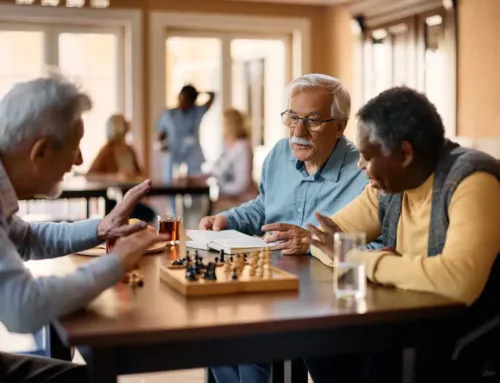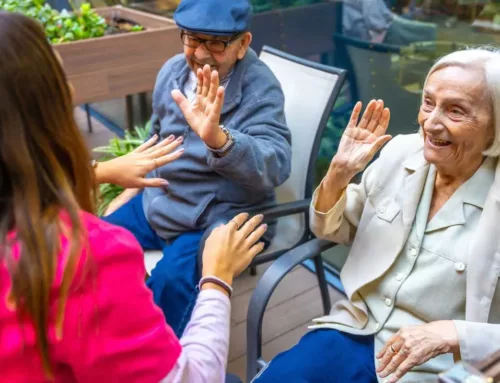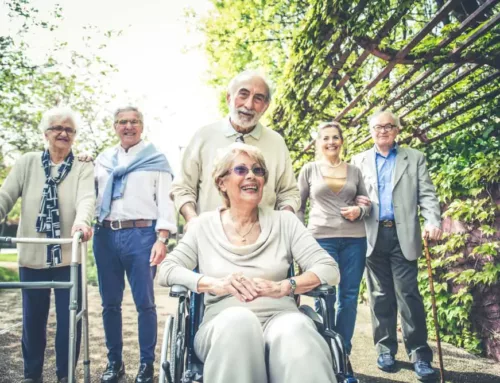
Moving to a senior living community allows aging seniors to receive needed support with activities of daily living, while enjoying an independent lifestyle rich with social and recreational opportunities. With accessible spaces, enhanced safety and supervision and on-site trained staff available around the clock, seniors are able to feel safe and supported as they enjoy the retirement they always dreamed of.
But what about family caregivers? The family members who take responsibility for the care of their parent or aging loved one sit right at the heart of senior care. They too deserve to be offered support in their role, which can be both physically and emotionally demanding. Devoted family caregivers of aging seniors are inherently selfless individuals, who often push their own needs aside to prioritize those of their loved one. The best senior living communities in AZ recognize that family caregivers should be offered support, too.
Why do Family Caregivers Need Support?
Despite many caregivers viewing their role as a positive experience, family caregivers are at an increased risk of a range of mental and physical health issues. For example, as a senior loved one ages and requires more intense and time-consuming care, caregiving can become isolating. As a result, it’s not uncommon for family caregivers to deal with feelings of loneliness, which is also linked to secondary health problems like high blood pressure, sleep interruptions and depression.
Unfortunately, isolation isn’t the only challenge family caregivers face. They’re also more likely to run into financial difficulties, sacrificing paid work to spend more time providing the attentive care their loved one needs. Family caregivers are more at risk of chronic illness, exhaustion and burnout, and can benefit from a combination of practical, emotional and social support to help them cope with the demands of caregiving.
How can Residential Assisted Living Support Family Caregivers?
When a senior is welcomed into a residential assisted living community in Tucson, so are their family caregivers. Senior living teams have a deep understanding of the issues faced by the families of aging seniors, and are on hand to provide all the help and guidance they need. This can range from practical and physical assistance to emotional, social, and even financial guidance. Let’s explore just a few ways in which senior living communities support family caregivers.
- Relieving the practical and physical burden of care. As a senior ages and experiences a natural decline in mobility, providing care often becomes an increasingly physical task for family caregivers. Seniors may need assistance with activities of daily living like using the bathroom, bathing, dressing and moving around the home. Without specialist equipment and training, many caregivers struggle to cope, and are put at an elevated risk of injury. Expert caregivers in residential assisted living communities offer practical support that benefits both residents and their families. With this support, a senior will be taken care of safely and efficiently, while family caregivers are relieved of the physical challenges caregiving can present.
- Offering emotional and social support. Being a family caregiver can be a mentally challenging time. Whether a caregiver adopted their role gradually, or suddenly following acute illness or injury, the journey can give rise to a rollercoaster of emotions. Seeing a parent or loved one’s health decline is never easy, and caregivers sometimes feel unable to talk to friends or family about the realities of caregiving. With increased time spent meeting the needs of their loved one, family caregivers also often have a diminished social life, leaving little opportunity for them to seek out the social support they need. Professional caregivers and other team members in residential assisted living communities possess a deep understanding of the emotional challenges family caregivers face, and often become an excellent addition to their support system.
- Facilitating quality time and memory making. As the demands of caring for a parent or loved one at home intensify, caregivers often find themselves only being able to cover the bare necessities of care in between other commitments like work, raising children or running essential errands. However, when a senior’s physical needs are met by professional caregivers in residential assisted living, family caregivers are left with more time to enjoy being with their loved one, free from stress and time pressure. Many communities also host social events aimed at seniors and their relatives, which can allow families to make precious memories in a safe environment, and with the support of professional caregivers.
- Offering assistance with technicalities and big care decisions. Particularly for first-time family caregivers, the technical and financial aspects of organizing senior care for a loved one can be daunting. Residential assisted living facilities house a diverse range of individuals, each with their own circumstances and unique decisions to make. Senior living teams are experts in answering the important questions, offering tailored support to seniors and family caregivers. From a care perspective, professional caregivers monitor the health of residents, supporting families in any future decisions to move them to a 24-hour nursing, specialist memory or hospice care setting.
When considering residential assisted living for an aging senior, it’s easy to focus solely on the pros and cons for your loved one. But it’s also important to prioritize your own health and wellbeing as a family caregiver, because you deserve to feel supported, empowered and uplifted in your role. To find out more about how our residential assisted living team can offer the tailored support you need, get in touch or arrange a visit today.




